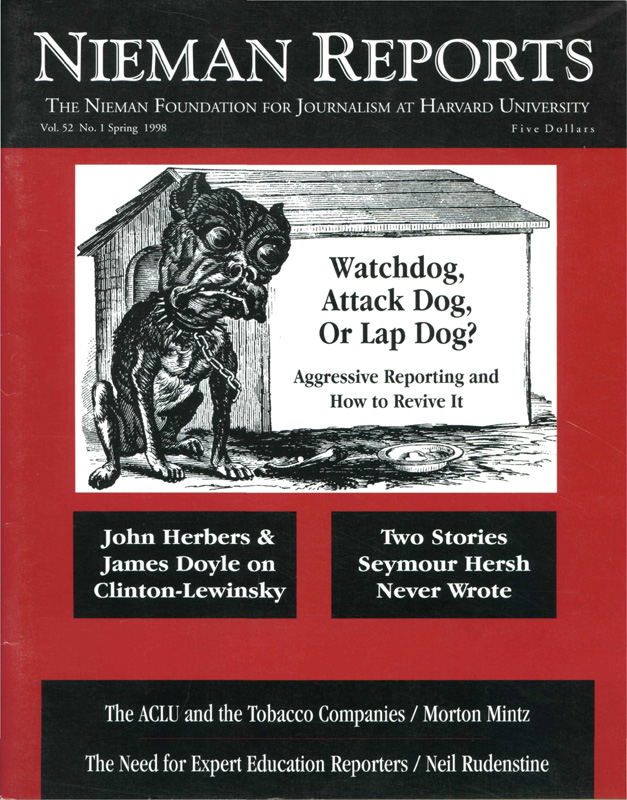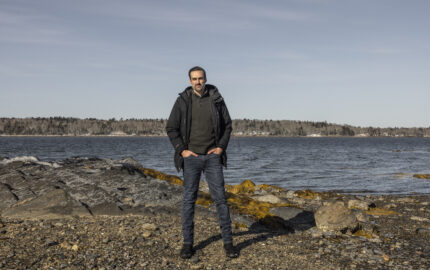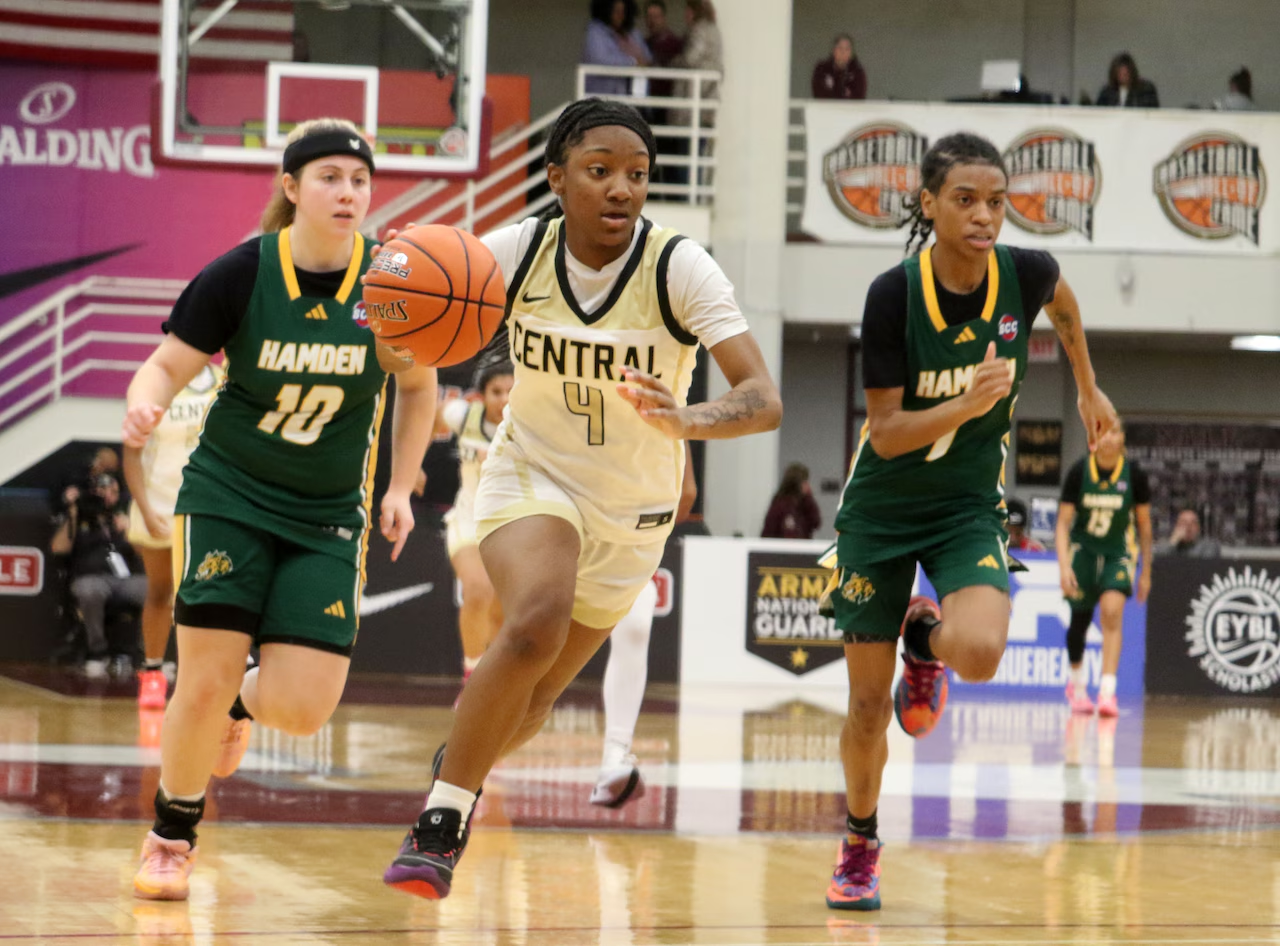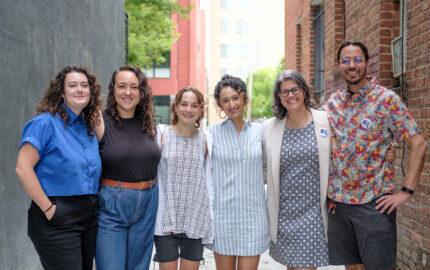Joyce Purnick is right about almost everything, which means that a lot of the rest of us—and maybe even Purnick herself—should be rethinking some of the things that we do.
She's right that none of us have enough resources. Every good newspaper has aspirations that far exceed its grasp, and none of us have the staffing we need to do all that we'd like to do.
That said, The New York Times has a newsroom staff of more than 1,000 and sometimes has more people based in Moscow than it docs in Albany.
Newsday has a newsroom staff of more than 500, and probably commits more staff time, expense money and newsprint to covering professional hockey than it does the routine of state government.
And The Times probably commits more resources to the coverage of food, wine and restaurants than Newsday does to the coverage of hockey.
Which is just a roundabout way of saying that we have to get past the issue of resources or we can't make any progress at all. If The New York Times doesn't have resources then none of the rest of us do. But the fact is that while none of us have the resources we want, most of us probably can find the resources we need if we decide that coverage of state and local government is a serious priority and set about covering it in different ways.
It's important that we do this because Purnick is not only right but right absolutely when she says that coverage of state and local government is becoming ever more important as Washington continues to shift ever more responsibilities to localities.
Maybe we should start by re-examining the notion that "our top priority has to be covering the news—what happened today" and that it's important to coverall "the small, incremental stories as well as the big ones."
Sometimes the small and incremental are important,but often they can (a) be left to the wires, (b) dealt with in weekly summaries and wrap-ups, or (c) ignored. And people can get most of the small and the incremental and "what happened today" from radio and television and the Internet anyway. For newspapers to be useful they have to do more. For reporters to rush around chasing a mayor who is holding seven interviews and press briefings in a given day is like playing handball against three opponents all at once. They'11always be responding to what's being thrown at them, always responding to the sound bite of the day, and never getting a chance to set an agenda of coverage of their own.
FOCUSING ON BALANCE
A valuable service that journalists are uniquely suited to provide is to investigate charges they report and inform audiences of their truth. But because their concern is with balance—presenting both sides—and because information tends to be filtered through our two-party system, it is easy to see how a reporter might feel the job is done when Democratic and Republican accusations are both reported. By focusing on balancing two sides, the press moves away from the investigative role for which it is so singularly well equipped. The result is that less needed information gets out.
—Deborah Tannen, "The Argument Culture: Moving from Debate to Dialogue."Random House, 1998Reporting what politicians and government officials are saying is the easiest thing that we do. Reporting what they're actually doing is harder but more important in the end—particularly if what they've been doing differs significantly from what they've been saying. If we can't do both, should we be tilting towards the former or the latter, knowing that one substantial story a week about a government decision that wasn't announced in a press release can be more important than a dozen reports on pre-scripted sound bites.
Purnick is right that some papers are hesitant to get ahead of a story, and that many editors are more comfortable focusing on issues that have been raised by others than they are raising issues themselves. This mind set has to change if coverage of state and local governments is going to improve. And this requires not just an allocation of resources but a commitment by editors to make serious enterprise reporting an integral and ongoing part of their reporting mission, something that is built into the structure of the newsroom and into the very spirit and fiber of the place. This sort of reporting has to be endless and ongoing, and not just an occasional or a sometimes thing.
I don't pretend that we have the perfect model at Newsday, but we probably do more serious public service journalism and investigative reporting than most papers our size. And for the last 50 years most of this reporting has been focused on local politicians and local government agencies. There have been spot news stories that we've missed and trend stories where our coverage has been both late and insufficient. But over time we've managed to examine repeatedly and in detail the extent of the nepotism and the abuses of patronage in Nassau and Suffolk counties, the way contracts have been awarded to insiders, the many ways in which political leaders have benefited from public policy decisions, and the methods, some bordering on extortion, by which campaign moneys have been raised.
At any given time, there are stories in town halls and in local zoning boards that surely are not getting done, or not getting done as fully as we'd like. But at any given time there also are four, five or six investigative or enterprise projects under way, all of them looking at the kinds of deals, decisions and patterns of conduct that aren't being announced in press releases or sound bites.
We should back up and rethink the premise that serious newspapers "want to do it all and should do it all." We should consider whether it's better instead to ignore some of the routine and the incremental—or do minimalist coverage of it, or just delegate it to the AP—and to shift resources to the sort of stories that never will get done if most reporters are forced to spend most of their working days covering the press briefings and chasing the sound bites.
 Anthony Marro is Editor and Executive Vice President of Newsday. He was a reporter for The Rutland (Vermont) Herald, Newsday, Newsweek and The New York Times. He returned to Newsday in 1979 as Washington Bureau Chief and was named Managing Editor in 1981. He was a member of reporting teams that won Pulitzer Prizes in 1970 and 1974, and has won numerous other awards. He and his wife, Jacqueline, live in Northport, N.Y.
Anthony Marro is Editor and Executive Vice President of Newsday. He was a reporter for The Rutland (Vermont) Herald, Newsday, Newsweek and The New York Times. He returned to Newsday in 1979 as Washington Bureau Chief and was named Managing Editor in 1981. He was a member of reporting teams that won Pulitzer Prizes in 1970 and 1974, and has won numerous other awards. He and his wife, Jacqueline, live in Northport, N.Y.
She's right that none of us have enough resources. Every good newspaper has aspirations that far exceed its grasp, and none of us have the staffing we need to do all that we'd like to do.
That said, The New York Times has a newsroom staff of more than 1,000 and sometimes has more people based in Moscow than it docs in Albany.
Newsday has a newsroom staff of more than 500, and probably commits more staff time, expense money and newsprint to covering professional hockey than it does the routine of state government.
And The Times probably commits more resources to the coverage of food, wine and restaurants than Newsday does to the coverage of hockey.
Which is just a roundabout way of saying that we have to get past the issue of resources or we can't make any progress at all. If The New York Times doesn't have resources then none of the rest of us do. But the fact is that while none of us have the resources we want, most of us probably can find the resources we need if we decide that coverage of state and local government is a serious priority and set about covering it in different ways.
It's important that we do this because Purnick is not only right but right absolutely when she says that coverage of state and local government is becoming ever more important as Washington continues to shift ever more responsibilities to localities.
Maybe we should start by re-examining the notion that "our top priority has to be covering the news—what happened today" and that it's important to coverall "the small, incremental stories as well as the big ones."
Sometimes the small and incremental are important,but often they can (a) be left to the wires, (b) dealt with in weekly summaries and wrap-ups, or (c) ignored. And people can get most of the small and the incremental and "what happened today" from radio and television and the Internet anyway. For newspapers to be useful they have to do more. For reporters to rush around chasing a mayor who is holding seven interviews and press briefings in a given day is like playing handball against three opponents all at once. They'11always be responding to what's being thrown at them, always responding to the sound bite of the day, and never getting a chance to set an agenda of coverage of their own.
FOCUSING ON BALANCE
A valuable service that journalists are uniquely suited to provide is to investigate charges they report and inform audiences of their truth. But because their concern is with balance—presenting both sides—and because information tends to be filtered through our two-party system, it is easy to see how a reporter might feel the job is done when Democratic and Republican accusations are both reported. By focusing on balancing two sides, the press moves away from the investigative role for which it is so singularly well equipped. The result is that less needed information gets out.
—Deborah Tannen, "The Argument Culture: Moving from Debate to Dialogue."Random House, 1998Reporting what politicians and government officials are saying is the easiest thing that we do. Reporting what they're actually doing is harder but more important in the end—particularly if what they've been doing differs significantly from what they've been saying. If we can't do both, should we be tilting towards the former or the latter, knowing that one substantial story a week about a government decision that wasn't announced in a press release can be more important than a dozen reports on pre-scripted sound bites.
Purnick is right that some papers are hesitant to get ahead of a story, and that many editors are more comfortable focusing on issues that have been raised by others than they are raising issues themselves. This mind set has to change if coverage of state and local governments is going to improve. And this requires not just an allocation of resources but a commitment by editors to make serious enterprise reporting an integral and ongoing part of their reporting mission, something that is built into the structure of the newsroom and into the very spirit and fiber of the place. This sort of reporting has to be endless and ongoing, and not just an occasional or a sometimes thing.
I don't pretend that we have the perfect model at Newsday, but we probably do more serious public service journalism and investigative reporting than most papers our size. And for the last 50 years most of this reporting has been focused on local politicians and local government agencies. There have been spot news stories that we've missed and trend stories where our coverage has been both late and insufficient. But over time we've managed to examine repeatedly and in detail the extent of the nepotism and the abuses of patronage in Nassau and Suffolk counties, the way contracts have been awarded to insiders, the many ways in which political leaders have benefited from public policy decisions, and the methods, some bordering on extortion, by which campaign moneys have been raised.
At any given time, there are stories in town halls and in local zoning boards that surely are not getting done, or not getting done as fully as we'd like. But at any given time there also are four, five or six investigative or enterprise projects under way, all of them looking at the kinds of deals, decisions and patterns of conduct that aren't being announced in press releases or sound bites.
We should back up and rethink the premise that serious newspapers "want to do it all and should do it all." We should consider whether it's better instead to ignore some of the routine and the incremental—or do minimalist coverage of it, or just delegate it to the AP—and to shift resources to the sort of stories that never will get done if most reporters are forced to spend most of their working days covering the press briefings and chasing the sound bites.
 Anthony Marro is Editor and Executive Vice President of Newsday. He was a reporter for The Rutland (Vermont) Herald, Newsday, Newsweek and The New York Times. He returned to Newsday in 1979 as Washington Bureau Chief and was named Managing Editor in 1981. He was a member of reporting teams that won Pulitzer Prizes in 1970 and 1974, and has won numerous other awards. He and his wife, Jacqueline, live in Northport, N.Y.
Anthony Marro is Editor and Executive Vice President of Newsday. He was a reporter for The Rutland (Vermont) Herald, Newsday, Newsweek and The New York Times. He returned to Newsday in 1979 as Washington Bureau Chief and was named Managing Editor in 1981. He was a member of reporting teams that won Pulitzer Prizes in 1970 and 1974, and has won numerous other awards. He and his wife, Jacqueline, live in Northport, N.Y.



